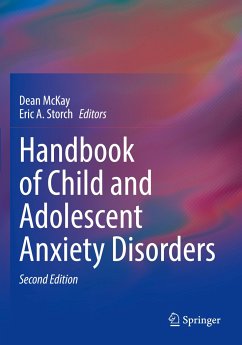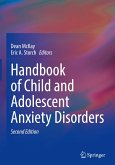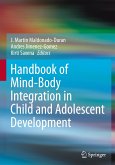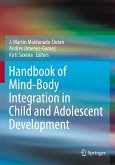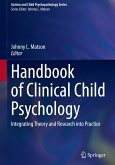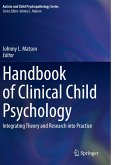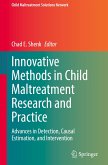The Second Edition of the handbook incorporates notable research advances throughout its comprehensive, up-to-date examination of this diverse and maturing field. Integrative state-of-the-art models document the complex interplay of risk and protective factors and other variables contributing to normal and pathological development. New and updated chapters describe current refinements in assessment methods and offer the latest research findings from neuroscience. In addition, the Second Edition provides readers with a detailed review across the spectrum of salient topics, from the effects of early deprivation to the impact of puberty.
As the field continues to shift from traditional symptom-based concepts of pathology to a contemporary, dynamic paradigm, the Second Edition addresses such key topics pertinent to childhood anxiety as:
· Early childhood disorders, including failure to thrive and attachment disorders.
· Aggression, ADHD, and other disruptive conditions.
· Developmental models of depression, anxiety, self-injury/suicide, and OCD.
· The autism spectrum and other chronic developmental disorders.
· Child maltreatment and trauma disorders.
The Handbook of Child and Adolescent Anxiety Disorders, Second Edition of the handbook is a discipline-defining, forward-looking, essential resource for researchers, clinicians, scientist-practitioners, and graduate students in such fields as developmental psychology, child and adolescent psychiatry, social work, child and school psychology, educational psychology, and pediatrics.
As the field continues to shift from traditional symptom-based concepts of pathology to a contemporary, dynamic paradigm, the Second Edition addresses such key topics pertinent to childhood anxiety as:
· Early childhood disorders, including failure to thrive and attachment disorders.
· Aggression, ADHD, and other disruptive conditions.
· Developmental models of depression, anxiety, self-injury/suicide, and OCD.
· The autism spectrum and other chronic developmental disorders.
· Child maltreatment and trauma disorders.
The Handbook of Child and Adolescent Anxiety Disorders, Second Edition of the handbook is a discipline-defining, forward-looking, essential resource for researchers, clinicians, scientist-practitioners, and graduate students in such fields as developmental psychology, child and adolescent psychiatry, social work, child and school psychology, educational psychology, and pediatrics.

